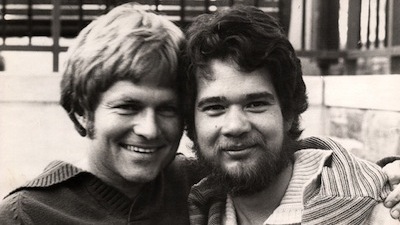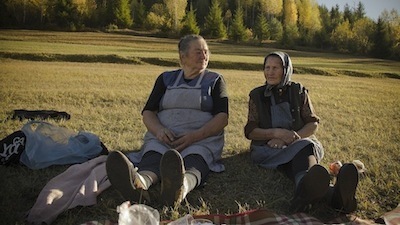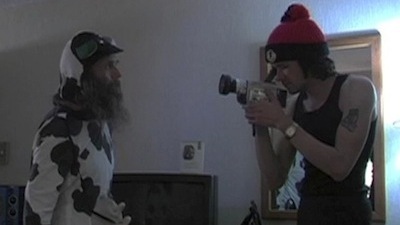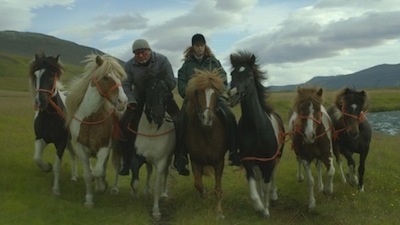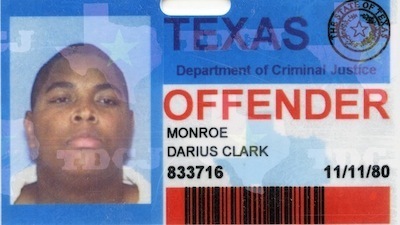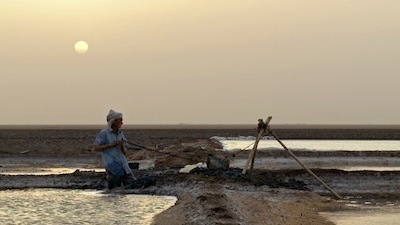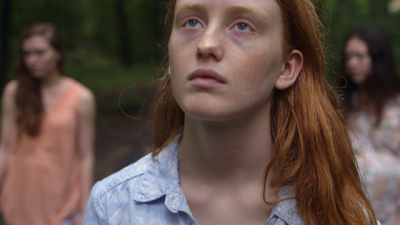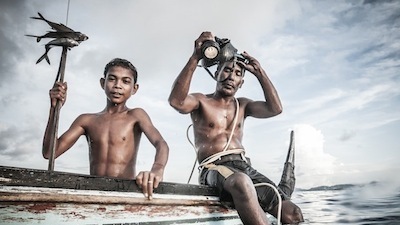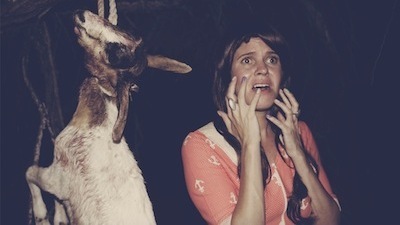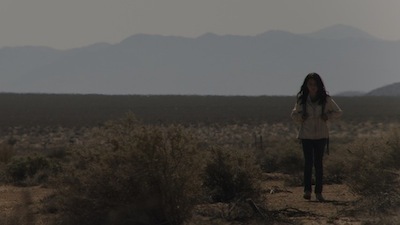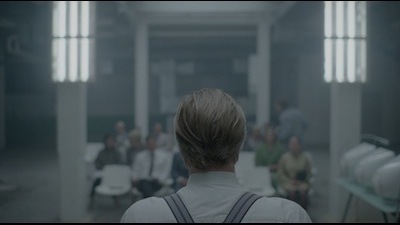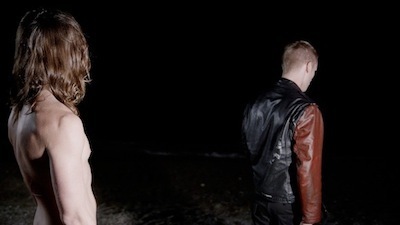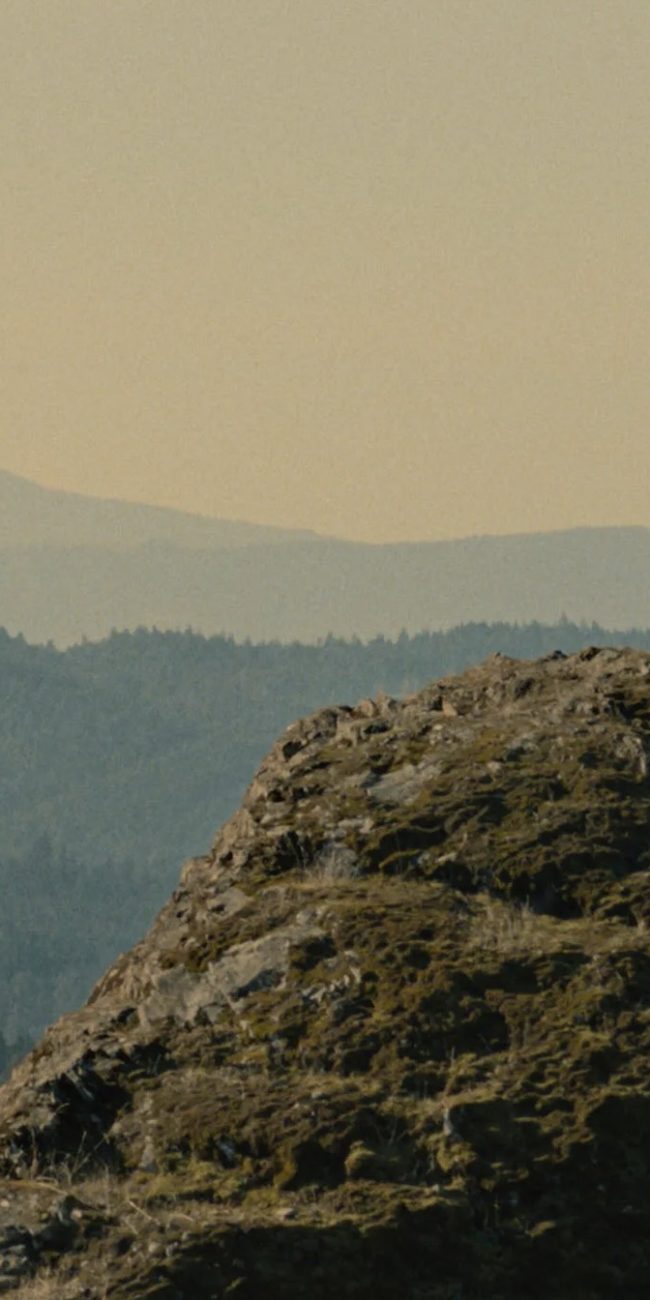Los Angeles Film Festival 2014 — A Preview
(The 2014 LA Film Fest runs June 11th–19th. Visit the festival’s official website for more information. FULL DISCLOSURE: Paul Sbrizzi is an associate shorts programmer for L.A.F.F., but he put on his film lover/reviewer toga to write this post.)
Snowpiercer, the new Bong Joon-ho, is opening the festival; Clint Eastwood’s Jersey Boys is closing. There will be galas for Justin Simien’s buzzy Sundance hit Dear White People, Ira Sachs’ gay marriage drama Love Is Strange with John Lithgow and Alfred Molina, and Hossein Amini’s Patricia Highsmith adaptation The Two Faces of January with Viggo Mortensen and Kirsten Dunst.
Amazing work debuts amidst these more obvious film soirees, away from the red carpets and paparazzi. Here are just a few of the many highlights.
FEATURES
Tony and Richard are true pioneers of the same sex marriage movement. They met at a bar called “The Closet” in 1971, when Tony was on a trip to the US from his native Australia. In 1975 they took advantage of a brief window of opportunity when a Colorado county clerk was issuing marriage licenses to gay couples, at a time when there were no specific laws on the books. When Tony applied for a green card based on his marriage to an American citizen, he got a letter from the INS stating, “You have failed to establish that a bona fide marital relationship can exist between two faggots.” Director Thomas G. Miller turns up a lot of great archival material, and follows colorful, outspoken Tony and quiet, loving and principled Richard across their 40-year quest to have their marriage officially recognized.
A film of very old people talking about their sex lives might seem, you know, kind of gross, but director Ágnes Sós gets a group of small-town Hungarian senior citizens to open up and share their erotic thoughts and feelings with a totally disarming innocence. One woman recalls her first orgasm in her late 60s: “Suddenly something shook me; something so unusual, so strange, it gave me the shivers. ‘Now that’s it!’ I said.” A man describes in detail how his late wife would give herself to all comers; how he devoted himself to her but only received her scorn, even on her deathbed—but then his face lights up as he mentions how happy he gets when he dreams of her. Sós uses the image of “rolling down a hill,” a local metaphor for orgasm, as the film’s simple and lovely leitmotif.
In fact, Giuseppe makes a lot of movies, one after the other. Operating out of a mobile home, he scribbles out manic, pre-teen-flavored, primary color scripts and quickly bangs out production. Director Adam Rifkin follows Giuseppe as he challenges himself to shoot the feature-length Garbanzo Gas in two days—down from his usual three. Giuseppe is both brainy and childlike; he seems almost made of light. He demonstrates a real caring for the band of outsiders he uses in his film—alcoholics, people living on the street, emotionally damaged souls and such, many of them quite elderly. One of his favorite actors has a tendency to poop himself and Giuseppe is philosophical about taking on the task of cleaning him up. His total belief in himself and his work is apparent as he feeds hilariously filthy and strangely poetic dialogue to his actors, one line at a time. He lives utterly in the moment: once he’s finished with a movie it’s all his producer (and dad) can do to stop him from throwing it in the trash.
The most excellent thing about festivals is when you discover a filmmaker who has come up with a whole new way to tell a story. Icelandic director Benedikt Erlingsson gives Robert McKee a wide berth, letting a series of vignettes rise up against each other like sticky buns in a baking dish. He opens his film with a sequence about a man mentally subduing and bridling a white female horse and proudly trotting her out for his neighbors to see, only to end up in an astonishingly staged love triangle with a horny black stallion, involving betrayal and murder. Erlingsson has a gift for creating striking images, and a fascinating understanding of the idiosyncracies of human-equine relationships. He digs into the flawed humanity of his characters and comes up with richly earned comedy.
This is a fascinating film in terms of its examination of the specific psychological and socio-economic factors that led a high school honors student to rob a bank in 1997. But what’s truly unique is that it’s a first person story: director Darius Clark Monroe did his time and went on to attend film school at NYU. He gets candid and heartfelt interviews with a whole range of characters affected by the robbery—most notably his mom, who bravely confesses to a certain degree of complicity. He also faces the living consequences of his actions, interviewing a bank patron who feared for his life and was left emotionally traumatized.
Director Rory Kennedy delves into the dramatic days leading up to the fall of Saigon, as the North Vietnamese Army advanced and American military and diplomats became increasingly desperate to save their South Vietnamese allies and friends, whose lives would be at risk after the communist takeover. The catch was that the US ambassador, Graham Martin, who had lost his foster son to the war, remained in total denial right until the end, and wouldn’t allow for an evacuation plan, thinking it would send the wrong signal. The film plays out as a thriller, where men risk being charged with treason in order to follow their conscience, and then race against time to get people out by any means necessary, in the midst of total chaos. Although Kennedy doesn’t go into the socio-economic struggles within Vietnam that led to the animosity against the US-backed ruling class, the film does include Vietnamese characters and perspectives—in particular a story about a Vietnamese pilot’s incredible, acrobatic feat to get his family and himself to safety on an American aircraft carrier.
A totally immersive experience, My Name is Salt drops you without context into an Indian family’s trek to the desert. An ancient tractor tows a pile of basic necessities and family members; at their destination, they dig down below the parched surface into the mud and pull out the rudimentary tools needed to set up a salt panning operation. It’s painstakingly slow, hard work, done entirely by hand; one part of the process involves compacting a huge expanse of land with their feet, one tiny footstep at a time. Director Farida Pacha takes a tough verité approach; she allows Lutz Konermann’s gorgeous cinematography to bring out the mythical quality of the story, and artfully weaves production sound and sparse, understated music into a hypnotic whole. The film’s underlying theme is that man’s highest purpose is the pursuit of an ideal—in this case, a harvest of perfectly white crystals of salt.
Prolific young auteur Nathan Silver returns with another film built around his fascination with people living as boarders—this time set in a home for expectant teen mothers run by Carla, played by Silver’s mother Cindy, in a slight variant on her delicious take on the Jewish mother in Exit Elena. In that film, her invasive manner was unbalanced and neurotic, but here with the smallest tonal adjustment she becomes a wise and caring voice of reason. Her handsome nephew Robbie comes to stay with her after leaving his unfaithful wife, and causes a stir amongst the girls—especially Nina (India Menuez, a young Julianne Moore ringer), who has a highly volatile relationship with her immature baby-daddy Chase. The core of the film is the contrasting mentality between Carla’s grounded Earth Mother and the young people she tries to take care of, who are crippled by a kind of black and white thinking characteristic of Nathan Silver’s characters—this time manifesting in the love-you-hate-you polarities of romance.
In the waters between the Philippines and Borneo, Alexan, a fisherman, teaches his nephew how to dive deep below the surface breathing air from a hose attached to a compressor. He comes from a long tradition of divers amongst the semi-nomadic Badjao people, who essentially live on water. Director Eliza Kubarska beautifully captures the dreamy, underwater environment where Alexan has the good fortune to spend his time, while also conveying how difficult it is to actually subsist on what he catches. His wife is a piece of work, mercilessly belittling him when he comes home with only three fish, and his nephew is conflicted, tempted to go work at a nearby resort where the pay is better and more consistent.
Rania Attieh and Daniel Garcia will premiere their follow-up to OK, Enough, Goodbye at LAFF. Set in Del Rio, Texas, the film follows the parallel stories of a comically ambitious/untalented young actress and an older Mexican man who come to town for very different reasons. Attieh and Garcia bring their cool, idiosyncratic visual style to the film, framing their shots dead-center with a sense of playful detachment, and using sudden bursts of rapid fire editing.
DISCLAIMERLAND
There are also a couple of films made by friends of mine, but I would be remiss if I didn’t mention them. In Lake Los Angeles, co-writers Atsuko Okatsuka and Mike Ott (who also directed) continue their exploration of the American desert as seen through foreign eyes. Cecilia, a homeless adolescent Mexican girl who survives by shoplifting groceries, finds a sort of father figure in Francisco, a middle-aged Cuban immigrant who’s coming to terms with the emotional consequences of abandoning his wife and family back home. In The Last Time You Had Fun, directed by Mo Perkins from a script by Hal Haberman, a foursome of adults whose partying days are well behind them go awkwardly out on the town, get messy, and are forced out of their blasé comfort zones to confront dormant passions and conflicts. The heavy themes are cut with plenty of humor, and there’s a particularly funny cameo by LAFF alum Todd Berger as a no-nonsense medical marijuana entrepreneur.
SHORTS
In Peter Modesti’s arch and surreal 102A: Couple Fucking, a collector picks up the titular art piece, which consists of live humans, at an auction; his friends are only mildly impressed, and eventually he’s dealt his due consequences.
Mara Trifu’s The Bridge is a stunning meditative piece in which a funeral procession crosses a still landscape rich with wildlife that seems to have no further need for humans.
In Hu Wei’s documentary Butter Lamp, a series of rural Tibetan families pose in front of various large photographic backdrops of faraway places, creating a uniquely contemporary sense of displacement.
In Cara Conolly and Martin Clark’s Exchange and Mart, an adolescent girl at a Scottish boarding school exhibits unusual behavior in a rape-preparedness drill; it’s the rare coming of age story that’s done with specificity, sense of place and fully developed characters.
Ciaran Cassidy’s The Last Days of Peter Bergmann is a documentary about the mysterious man who came to Sligo, Ireland, and slowly disposed of all his possessions before taking his own life, leaving nothing behind but ghostly images of himself on CCTV footage.
Iris Lammertsma’s Off Ground is a deceptively simple dance film: an adult woman and a disarmingly expressive young boy express an uncanny connection, with a truly original approach to gesture and movement.
Rough Trade by Drew Lint is a dazzling visual treat, involving a street hustler drawn into dark rituals of fire and human branding.
Jean-Bernard Marlin’s The Runaway is a tough but highly empathetic look at a male social worker’s efforts to keep a troubled teenage girl out of the correctional system; the film brilliantly captures the rebelliousness and vulnerability of its wayward teen protagonist.
One of the most exciting discoveries of the festival is Zalfa Seurat’s Sporting Club, the story of a droll, world-weary French woman celebrating her 60th birthday on a vast, windy hotel terrace with a proud and elegant Arab waiter; the film captures a mood, an abstract sense of spirits interconnecting, and an undercurrent of emotion in an endlessly inventive whole.
Reinaldo Marcus Green’s Stone Cars [winner of our Winter ’14 Short Film Contest!] digs deep into the complex psychology of his teenage lead, as she grapples with decisions about sex in the violently sexist Kayelitsha township in South Africa. The film nicely shifts gears to convey the tenderness of her relationship with her boyfriend.
Victor Lindgren’s Undress Me cuts against the dramatic intensity of his subject matter, finding an easy, off-handed tone to the story of a straight guy who goes home with transsexual Mikaela; the guy’s clumsy attempts to make sense of the situation play off Mikaela’s fragile poise to create a wholly unique interaction that steers clear of any kind of sensationalism.
Finally, what more can I say about Alberto Vásquez’s Unicorn Blood? It’s cute, it’s evil, it’s Cain and Abel told with teddy bears; it can be enjoyed as a simple, character-driven comedy or you can find blackest despair and nihilism in its parable of the origin and basic nature of mankind.
— Paul Sbrizzi







